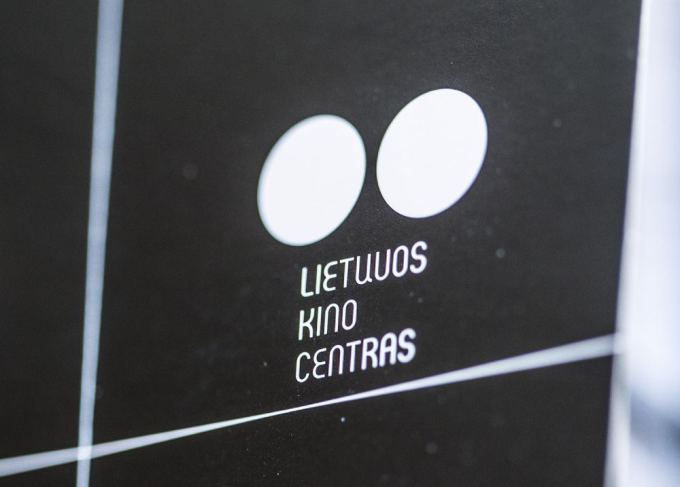The Lithuanian Film Centre – the institution that distributes public funding for filmmakers – has considered recommendations from the Film Council, as well as its previous commitments, and granted funding to five continuing projects.
1.196 million litas (346 thousand euros) were granted to director Emilis Vėlyvis, who is shooting his action comedy “London – Vilnius – Bangkok: Flight Redirected”.
This co-production with Great Britain, starring Vinnie Jones, was already given 804 thousand litas by the Ministry of Culture last year. The national première is scheduled for next January.
Marius Ivaškevičius' feature “Santa” was granted 255.6 thousand litas. The film was previously set to open in cinemas this March, but the première has been pushed back to autumn.
Another 460.6 thousand litas went for Ignas Jonynas' début feature “The Gambler”.
Documentary feature “Luckus”, directed by Giedrė Žickytė, received 101.2 thousand litas, while Vilanima studio's animated short “Luck – Bad Luck” was supported with 70 thousand litas.
All the projects above are already in post-production, the state money was needed to finish them up.
 |
| Edvinas Pukšta |
“Financial support was given to films that were launched into production by the previous Film Council. The state thus simply follows through with its contractual obligations. It would be absurd and illogical, even scandalous, for the current Film Council to make any other decision in assigning funding,” says former member of the council, film critic Edvinas Pukšta.
Meanwhile subsidies for new film projects have not been distributed yet – the Film Council is still processing applications.
Unbearable pressures
It has been promised to announce which new cinema projects will receive state funding by the middle of April – at least that is what Rolandas Kvietkauskas, director of the Lithuanian Film Centre, says.
Meanwhile Ramūnas Škikas, member of the Film Council, sighs: “We have over 90 applications. I think the results will not come before the second half of April.”
The council's chairwoman, programming coordinator at Skalvija cinema in Vilnius, Sonata Žalneravičiūtė notes that application processing is so long because it requires particular scrutiny.
“We must evaluate each project and assign marks following certain criteria – but also to outline our arguments. Moreover, if producers or directors still have questions, we summon them for a face-to-face meeting. We feel responsible for every single litas – we try to distribute the little money we have as objectively and fairly as possible,” Žalnarevičiūtė says.
Sources tell 15min that internal tensions, too, play a role in the council's work. It has been working for only several months now, but has already lost one of its members – 75-year-old scriptwriter Pranas Morkus, delegated to the council by the Lithuanian Film Centre. Many assume he resigned because he could not bear the pressure and in-fighting over the public money.
“I haven't heard such allegations,” the council's chairwoman counters. “In his official resignation letter, Morkus quotes shortage of time as the reason for his decision – work at the council took more of it than he had expected. But all is possible, the man could have had his personal reasons that he did not put on paper. In the end, I, too, find no pleasure in being accused of incompetence even before we start work. It will always be so – the filmmaking world is ridden with intrigue.”
She says that council members convene twice a week and spend over three hours each time.
Žalneravičiūtė is confident that the council will be full again when it makes the final decision on which new projects are to receive funding: “The person who will join us will be fully involved in the process, except perhaps that he or she will not have to do the dirty work of selecting front-runners among the 90 applicants.”
Old masquerading as new?
This year, the Ministry of Culture is distributing 7.245 million litas (2.1 million euros) among cinema projects. The maximum sum a feature film project can apply for is about 2.1 million litas – and few applicants ask for any less.
“For some reason, no one wants to take less than that. Everyone is going for the maximum quota – apparently, it is impossible to make a cheaper film, the budget is always as big as the law allows. As a result, most filmmakers in Lithuania fail to use the reserve or realize that there are other income sources – like ticket sales,” Pukšta says.
He believes that, unfortunately, most Lithuanian filmmakers are used to living on public money and do not even try to look for alternative funding sources.
“It is absurd to consider a film budget without giving any thought to how much money it can make. I hope that the current Film Council will not bring us back to the times when the support was given not to films needed by the spectators, but the ones by filmmakers themselves. I have suspicions that, this year, they will try to push through old projects rejected by the previous council,” Pukšta says.
Playing solitaire under the table
Pukštas makes a guess that one project, previously rejected by the council at least twice, might secure over 2 million litas this year.
“I think it [the film project] will be successful, because the current council has been composed in the way to make it favourable to one of the directors. He is the one who most actively contributed to the drafting of the Cinema Law and the rulebook of the Film Council, so that all the rules that had prevented him from getting financing before were gone. The Film Council is composed of filmmakers, professional critics, and producers – completely eliminating distributors and exhibitors from the picture. The Cinema Industry Association and the Cinema Exhibitors' Association could propose their candidates, but these could not be exhibitors or distributors,” Pukšta expresses his puzzlement.
Pukšta is convinced that the current Film Council would not have granted funding to either “Tadas Blinda. The Beginning” by Donatas Ulvydas – the most profitable Lithuanian movie to date – or the ongoing projects like Ivaškevičius' “Santa”, let alone Vėlykis' “London – Vilnius – Bangkok: Flight Redirected”.
“Tadas Blinda earned 3.7 million. Box-office returns of this size are impossible [in the rather small Lithuanian market], unless some fans come back for a second or third viewing. This means that the film appealed to the audiences, whatever critics or film professionals might say about its artistic merits. And it was very effective – something that most publicly-funded films greatly lack,” Pukšta notes. As an example, he quotes “The Excursionist” by Audrius Juzėnas who has been working on it for the last three years. It was to première this March, but the opening has been pushed back once again.
“Where is this film now? It's not here, but no one does anything about it. Why? Because we do not have a system or accountability. I hoped that the Lithuanian Film Centre would introduce one, but I'm disappointed – things are still how they used to be, except now, decisions that were made in the Ministry of Culture have been moved to Sierakausko Street. Someone is playing solitaire under the table,” Pukšta is convinced.
New framework of support
 |
| Rolandas Kvietkauskas |
Director of the Lithuanian Film Centre Kvietkauskas says he is puzzled by people doubting the Film Council's decisions even before they are made: “You must admit that all this commotion even before the council presents the results does raise some questions.”
Kvietkauskas says that even before the Lithuanian Film Centre was set up, he knew that there would be people unhappy with its decisions. “I am not a novice in the culture industry,” he says, “but the fact that I come from outside the filmmakers' community grants me a certain freedom to listen to everyone – both liberals and partisans of the more conservative view on what cinema is. Some film people have this idea that their expectations are not met unless their suggestions alone are taken into consideration. The Lithuanian Film Centre, however, is a state institution set up to protect the public interest, to look for compromise and make decisions acceptable to all, more or less,” Kvietkauskas explains.
He admits, though, that the current scheme of film funding needs revision. Distribution of state support should be more flexible in order to encourage more films to be produced in the country. Moreover, there are talks of introducing a financing scheme for low-budget films. There are also plans to put a time-frame cap on film projects – so that even large-scale productions are finished in two years.
“Starting in the second half of April, we are organizing public consultations with film industry people to discuss how to change financing guidelines. Over the month of May, we will draft a project and the new support scheme will be announced publicly in June. We will do our best to make sure that the new method encourage more vigorous filmmaking. Resources are obviously scarce, but money alone cannot solve all problems. We need a regulation that encourages to make films not just with state support but also to look for partners, to seek that Lithuanian films are seen outside the national borders, too,” Kvietkauskas outlines the challenges for the centre.
The Lithuanian Film Centre will soon have a staff of fifteen.
 |
| Lithuanian Film Centre |
Small but fragmented industry
Arūnas Matelis, documentary filmmaker, member of the Lithuanian Cinematographers' Union, and Directors Guild of America Award winner, says:
 |
| Arūnas Matelis |
“The Lithuanian Film Centre is still looking for its place, so I would be more patient towards it. We will be able to tell if it works efficiently or needs some adjustments in autumn, once we can see what has been accomplished and at what cost.
“I fully trust the Film Council members, their professionalism and authority. I think that the current scheme of selecting the council is better, since it precludes direct representation of interests of certain organizations, favouring them instead of film projects. The previous Film Council was not better or made up of saints – they made mistakes that cannot even be corrected now. For example, it spent 80 percent of all the money assigned for film promotion on stands in Berlin and Cannes, yet left the Lithuanian film that ran for an Oscar nomination – Audrius Stonys' “Ramina” – without an official showing in the United States. Moreover, in the end of the year, the council had no more money to support films invited to A-list festivals.
“We must understand, however, that the problem is not in the Lithuanian Film Centre of the Film Council. The tragedy is that our state has so low regard for culture that there's little to talk about. The situation will not improve until the state can guarantee that at least five or six narrative films and about 15 documentaries are produced each year. Until we have proper state funding for cinema, there will not be the needed rate of production so that the cinema goer can see a new Lithuanian film each month.
“Another problem is that the film industry consists of very diverse groups: film artists, concerned with the Lithuanian cinema identity, film producers, distributors who see cinema as a business, and firms that provide services to foreign production companies. They all have different interests and oftentimes, those of filmmakers clash with those of film businesspeople.”













